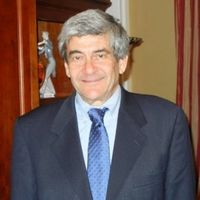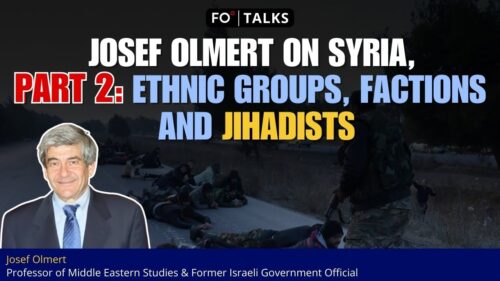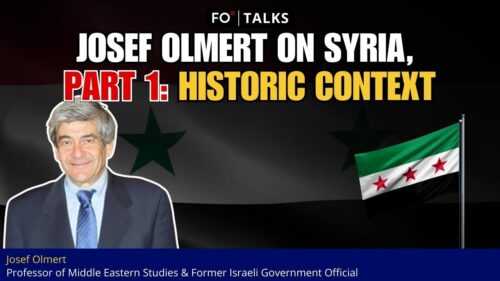[This is the third part of a nine-part series. To read more, see Parts 1 and 2 here.]
Approximately two million Kurds live in Syria, predominantly in the northeastern region near Iraq and Turkey. During the country’s ongoing civil war, which began in 2011, Kurdish groups established an autonomous polity in the area, dubbed the Democratic Autonomous Administration of North and East Syria, Rojava.
Turkey is also home to a sizable Kurdish minority. In the past, it has combated the Kurdistan Workers’ Party (PKK), a Kurdish nationalist organization that Turkey and the rest of NATO consider a terrorist group. The Turkish capital of Ankara worries that Rojava maintains ties with the PKK. This concern has shaped Turkey’s approach to Syria throughout its modern history.
Turkish–Syrian relations
Turkish President Recep Tayyip Erdoğan has sought leadership in the Sunni Muslim world. He is nostalgic for the era of the Ottoman Empire, which saw Turkey rule Syria and much of the Middle East until World War I (1914–1918). After the war, Turkey became a democratic republic and later allied with the United States during the Cold War of the 1950s. Turkey joined NATO in 1952.
During the 1950s and 1960s, Turkey viewed Syria as a stronghold of pro-Soviet influence in the Middle East. Turkey served as a founding member of the Baghdad Pact in 1955, which aimed to create a pro-Western alliance in the Middle East that excluded Israel. Syria instead formed an Arab socialist union with Egypt — the United Arab Republic — which lasted from 1958 to 1961.
In 1998, Turkey and Syria engaged in a military standoff at the border over Kurdish movements in Syria and water rights in the Euphrates River. At the same time, Israeli troops reportedly concentrated near the Golan Heights on the Israel–Syria border. This compelled Syria to sign the Adana Agreement, in which Syria turned PKK leader Abdullah Öcalan over to Turkish authorities.
Turkey continues to maintain influence in Syria in order to manage the perceived Kurdish threat. Turkey supported, among others, Abu Muhammad al-Julani’s (now Ahmed al-Sharaa’s) Hay’at Tahrir al-Sham (HTS), a Sunni Arab militant group. HTS successfully deposed Syrian President Bashar al-Assad in November 2024 and now controls the Syrian capital of Damascus.
Erdoğan aspires to predominance in the Levant and, therefore, finds himself at odds with the other major regional power, Israel. As a Sunni Muslim power, Turkey is sympathetic to the Palestinian cause. However, Ankara has avoided direct confrontation with Jerusalem, and the two powers share a common rival in Iran. For the moment, Turkish–Syrian relations appear stable.
[Liam Roman and Lee Thompson-Kolar edited this piece.]
The views expressed in this article/video are the author’s own and do not necessarily reflect Fair Observer’s editorial policy.











































Comment